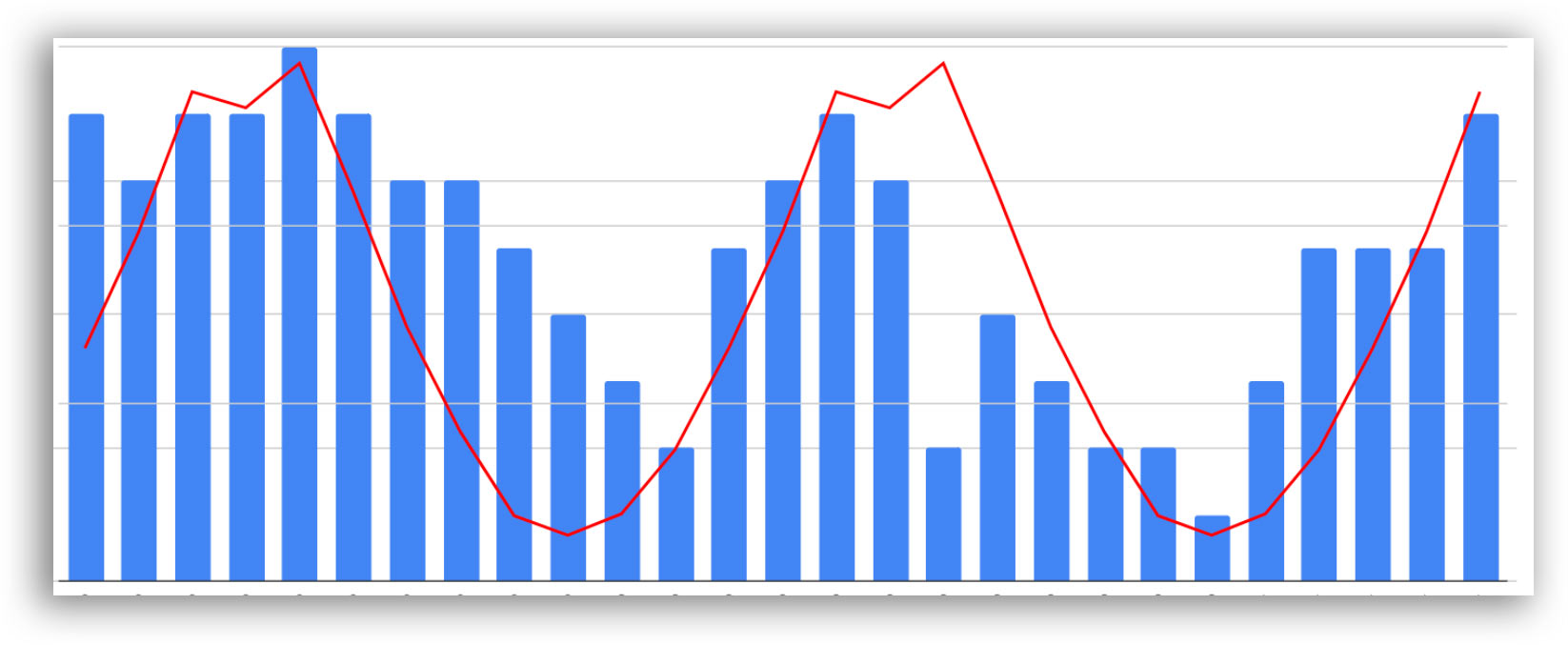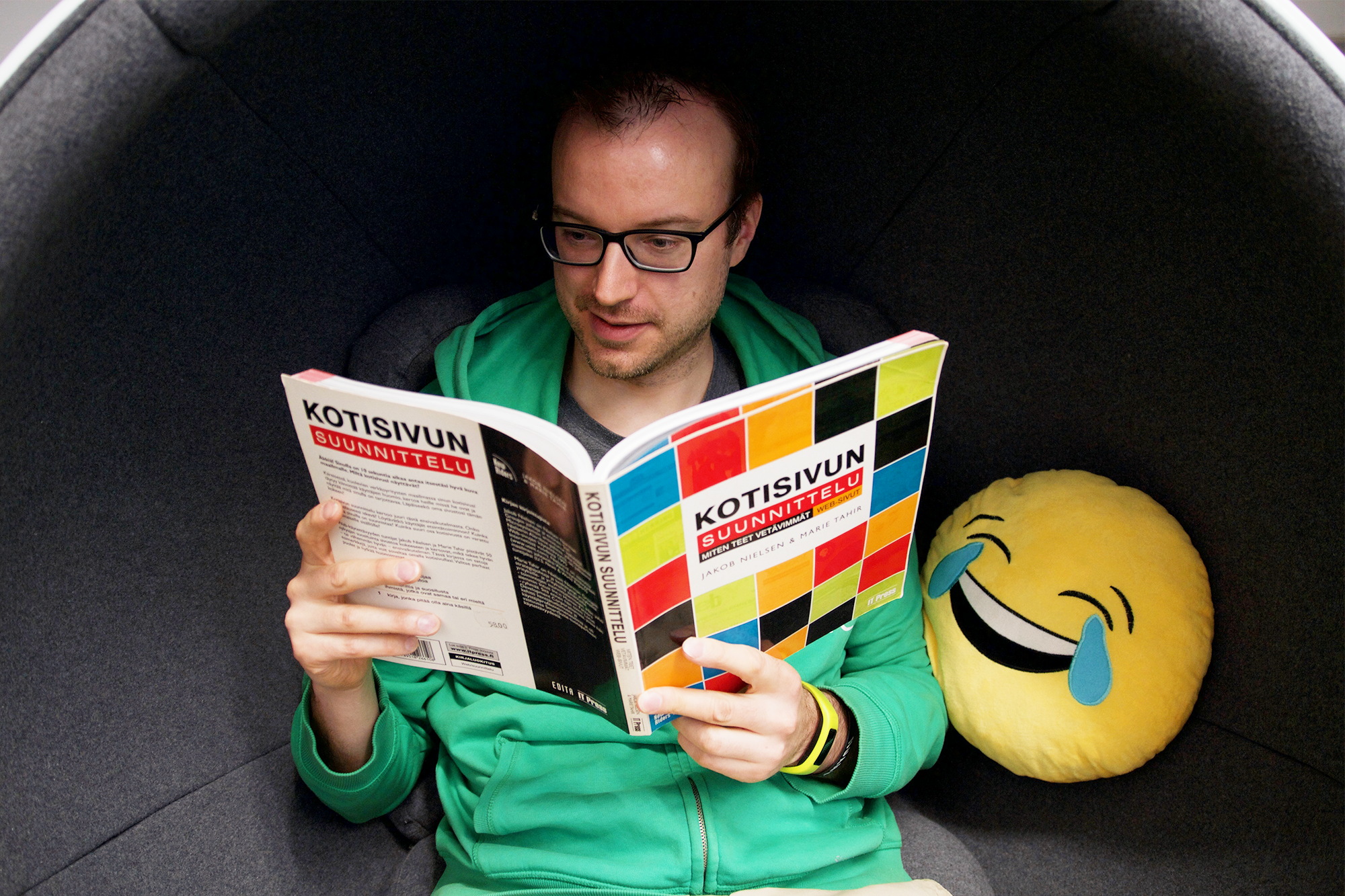Should recovery from stress be a business KPI?
The idea came to me as we were thinking about our goals and KPI’s for 2020. We are already tracking client satisfaction, sales, utilization rates and employee engagement with OfficeVibe Pulse surveys. But I felt like we needed something more to make sure our team is feeling and performing at the top level. There’s a whole bunch of research showing how increased stress & lowered recovery leads to reduced productivity, innovation & overall performance. I guess it’s fairly obvious without pointing to all the research too that having too much stress and not enough recovery begins to negatively affect both your personal life and your work-life. But how to track that, identify issues & fix them is another thing altogether.
“What if we started tracking our team’s recovery levels as a Key Performance Indicator?”
We’ve always believed that we can put our clients first by first investing in the overall wellness of our team members. We’ve often spoken about how happy people = happy clients (which in my experience often works the other way around too, happy clients = happy people). So a while back, we surprised our team with brand new Oura ring’s for Christmas. You might know what an Oura ring is, but just in case you haven’t come across this great gadget before: Oura is a ring-sized wellness-tracker that follows your movement, heart rate, heart rate variability, body temperature, sleep etc. to give you a better understanding of your recovery.
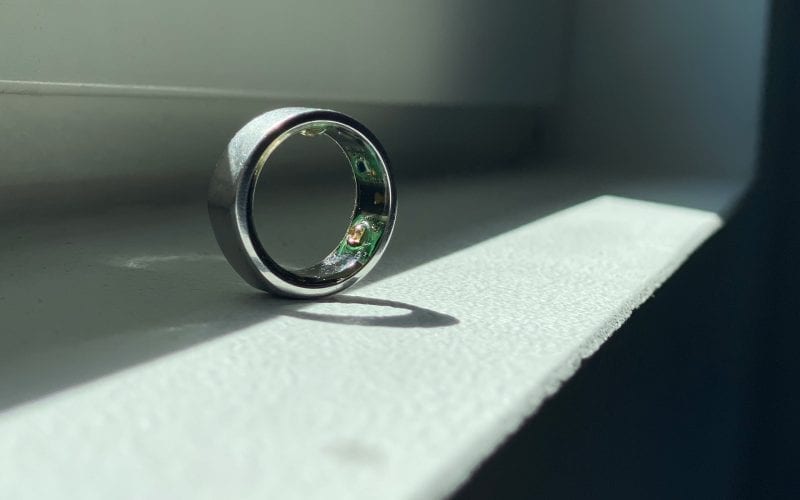
Fun fact: We used to work with Oura in the past for some years. We built their first teaser one-pager, the first launch site and later on their first ecommerce platforms.
“Sooo.. What if with the help of those Oura rings we started tracking our team’s recovery?”
People looked at me funny. “Julius… I mean tracking employee engagement with Pulse Surveys is one thing, but tracking people’s actual pulse?”.
Point taken. I understand how your employer tracking your body temperature, heart rate and bedtime in semi-real-time might sound a bit 1984.
“But what if we anonymize the data, group it by team and focus on trends rather than looking at a single individual’s values?”
Could we in fact make this a company (or team level) KPI?
With help of one of our designers (Phil), we created these quick drafts of what our Recover tracking dashboards could look like. The idea was to play around with the idea a little to see if there would be more traction in the team after “seeing it”.
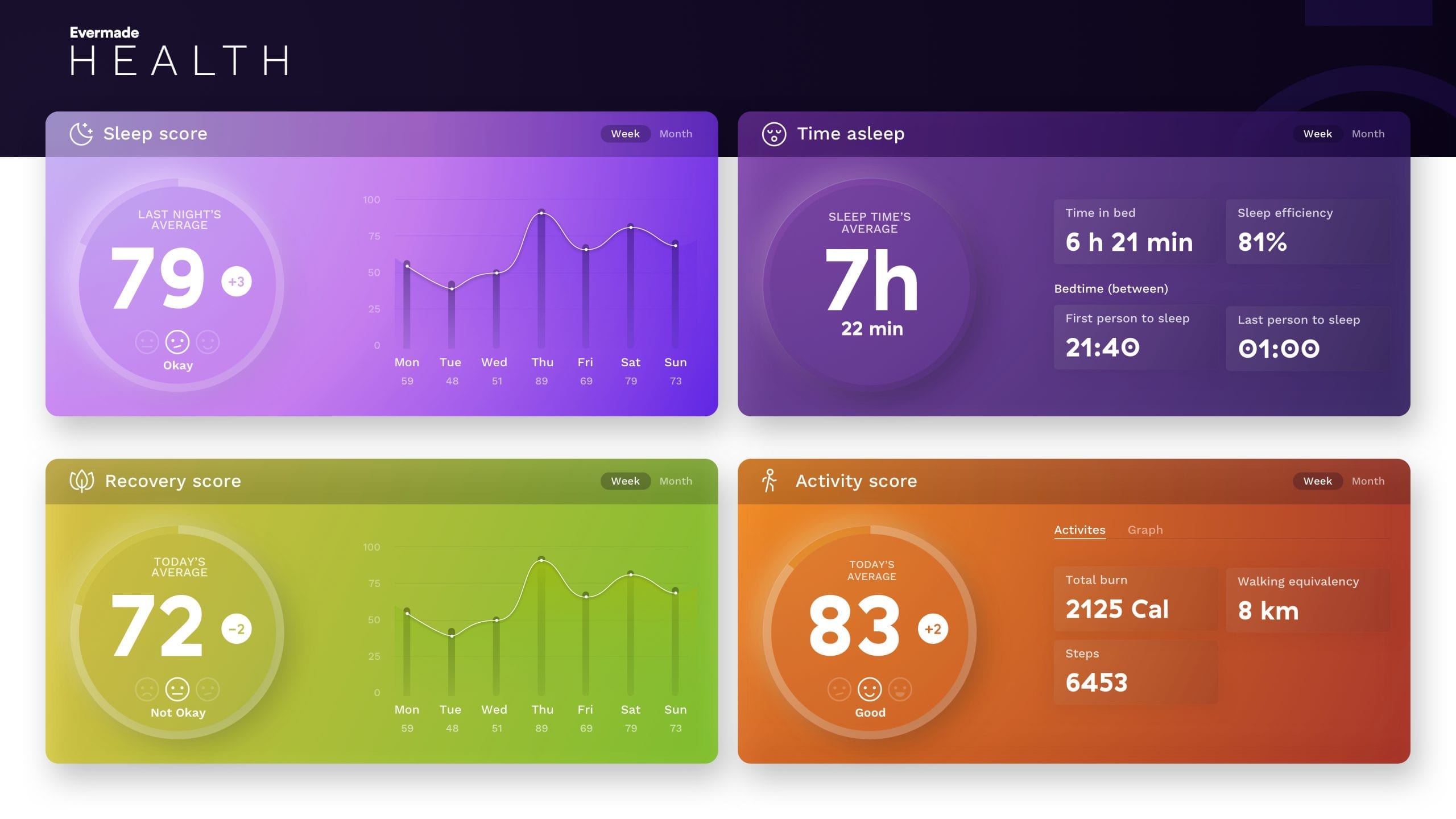
I don’t know about you, but I think it looks pretty dope. But what about the data? We don’t need our colleagues to be tracking all our bodily functions. AND we’re talking about people’s health here, so of course it needs to be secure (and opt-in).
Seems like Oura has a pretty nice API & documentation. https://cloud.ouraring.com/docs/authentication. Could we maybe get people creating their own tokens, then fetch the data, anonymize it somehow along the way, calculate some averages and then build these nice visualizations out of it that could help us understand how our team is doing on the stress front?
I mean, it sounds super interesting to me. But I guess you could just ask how they are doing? And IMO in the end, only actionable data is good data. So would we be able to actually get people to change their behaviors for their own benefit with the help of this tool? I don’t know.. maybe?
Previous successes with gamifying wellness
We had already done something similar with our previous ventures in gamifying something that’s good for you – like with our company wide cycling kilometre race competition with a Strava-integrated dashboard including Rankings, Top Lists, Milkshakes burned (as an individual & a collective). You could see your ranking among colleagues and fight your way to be the craziest cyclist in the company. That tool helped spark the interest for exercise for quite a few of our team mates, leading to weight loss, overall health increase and all their money now going towards buying new bike gear.
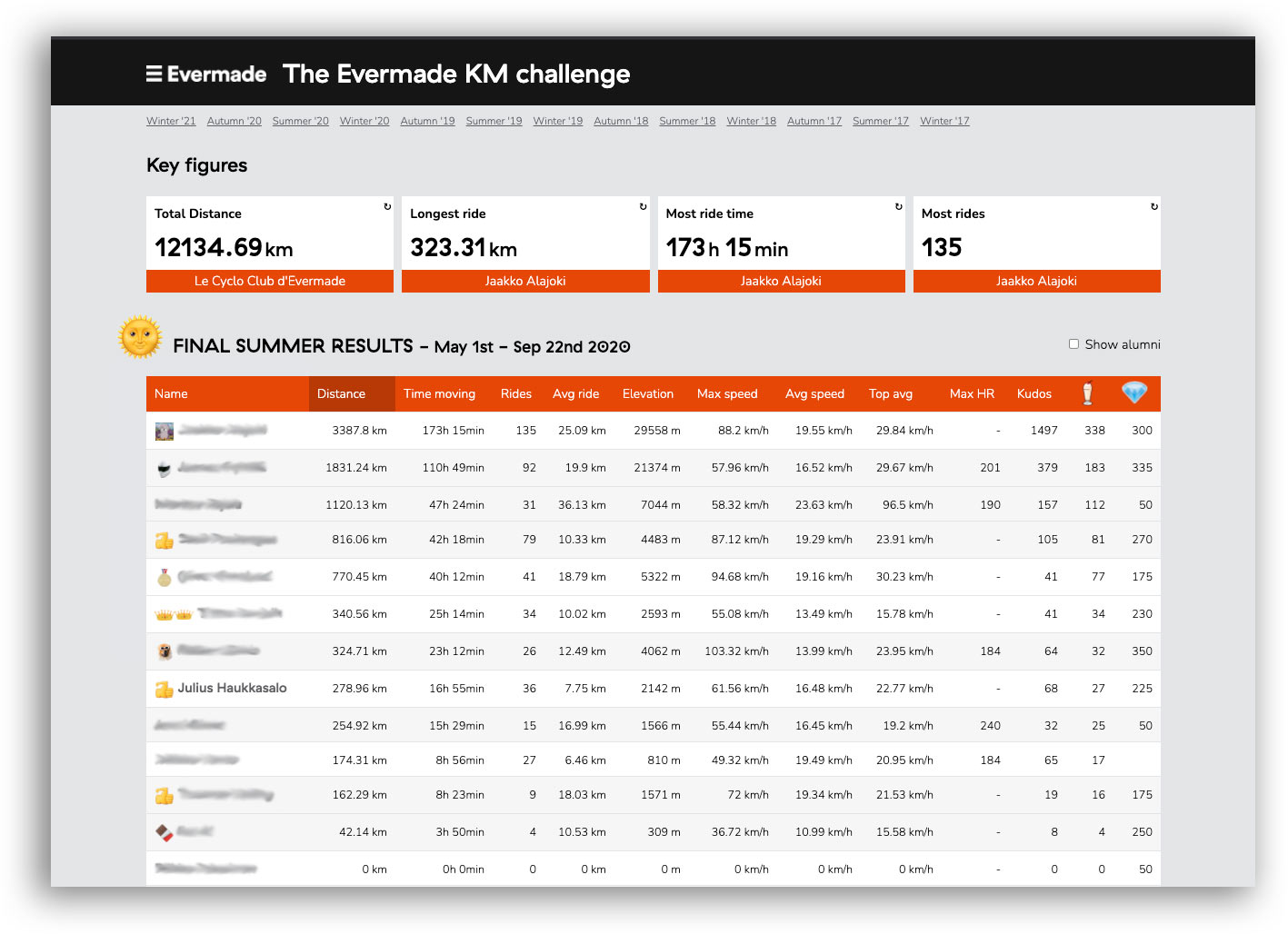
Well, after some thought we decided to put building the new dashboard to a vote – and ultimately we didn’t quite have enough interest in the team to go through with it. But I still feel there’s something in this idea. At least the basic idea of considering your team’s stress, recovery & wellbeing as a whole can take you a long way.

Any thoughts? If you’re interested in this sort of stuff, connect with me on LinkedIn or hit me up if you’re interested in building something similar for your company.
Thanks for reading, Julius
PS. I’ve always wondered about the relation of sunshine and our team’s happiness at work. I finally decided to follow-up on that a few days ago and here’s the results (red line being average sunshine hours per month & blue bars being our Officevibe Engagement Scores. Some correlation there, don’t you think?
